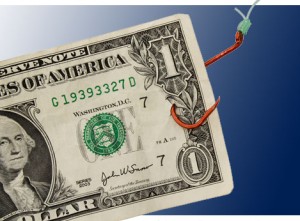STATE GOVERNMENT
House passes four bills tackling wage theft
 OLYMPIA (Feb. 18, 2014) — Last week, the state House of Representatives passed a package of legislation designed to discourage wage theft, level the playing field for honest employers, and recover state revenue lost due to the deliberate misclassification of workers as independent contractors.
OLYMPIA (Feb. 18, 2014) — Last week, the state House of Representatives passed a package of legislation designed to discourage wage theft, level the playing field for honest employers, and recover state revenue lost due to the deliberate misclassification of workers as independent contractors.
“We applaud the House members who supported these important bills and urge the Senate to take an equally strong stand against wage theft this session,” said Jeff Johnson, President of the Washington State Labor Council, AFL-CIO. “This shouldn’t be a partisan issue. This is about making sure that people get paid what they’ve earned and making sure that responsible employers aren’t undermined by unscrupulous competitors that cheat the system. We should all be able to support those objectives.”
The following bills were approved by the House on mostly party-line votes:
Certified Payroll (HB 2331) — Passed the House 54-44 on Feb. 13 with all Democrats voting “yes” EXCEPT Rep. Christopher Hurst (D-Enumclaw), who joined with Republicans in voting “no.” — When the state pays for public construction, it expects that the workers are paid the local prevailing wage for the kind of work they are performing. Currently, contractors certify their wages only after the project is complete. Sometimes, contractors from out-of-state don’t pay the lawful wage, but by the time it is discovered, the contractor has already left Washington and the owed wages cannot be recovered. By requiring timely, certified payroll reports, the state will make it easier for workers to verify they are being lawfully paid.
 Triple Damages (HB 2332) — Passed the House 53-45 on Feb. 11 with all Democrats voting “yes” EXCEPT Rep. Hurst and Rep. Kathy Haigh (D-Shelton), who joined with Republicans in voting “no.” — Bad employers shouldn’t be able to get away with stealing wages from their workers. By demanding that these unscrupulous businesses pay triple damages, the Legislature can send a strong message that this kind of theft will not be tolerated.
Triple Damages (HB 2332) — Passed the House 53-45 on Feb. 11 with all Democrats voting “yes” EXCEPT Rep. Hurst and Rep. Kathy Haigh (D-Shelton), who joined with Republicans in voting “no.” — Bad employers shouldn’t be able to get away with stealing wages from their workers. By demanding that these unscrupulous businesses pay triple damages, the Legislature can send a strong message that this kind of theft will not be tolerated.
Retaliation (HB 2333) — Passed the House 53-45 on Feb. 13 with all Democrats voting “yes” EXCEPT Reps. Hurst and Haigh, who joined with Republicans in voting “no.” — While most employers do their best to pay workers lawfully — or quickly remedy problems when they are identified — certain bad actors do not pay what is owed even when presented with evidence showing the shortfall. Even worse, some employers will retaliate against workers seeking the wages they earned by cutting hours, terminating employment, or threatening immigration-related actions. This is immoral and unacceptable, yet there are few protections in state wage-and-hour laws to protect workers from such actions. That is why it is so important that the Legislature adopt anti-retaliation legislation to protect workers who try to get paid what they have earned.
 Workplace Fraud (HB 2334) — Passed the House 51-45 on Feb. 14 with all Democrats voting “yes” EXCEPT Reps. Hurst, Haigh, and Larry Springer (D-Kirkland), who joined with Republicans in voting “no.” — Misclassifying workers as independent contractors is workplace fraud. This is how some businesses avoid paying the taxes and insurance premiums that protect everyone. By establishing a simple, three-part test, the State Legislature can make it clear who is a traditional employee and who is a bona fide independent contractor, so that true employees are no longer misclassified and cheated out of protections or pay:
Workplace Fraud (HB 2334) — Passed the House 51-45 on Feb. 14 with all Democrats voting “yes” EXCEPT Reps. Hurst, Haigh, and Larry Springer (D-Kirkland), who joined with Republicans in voting “no.” — Misclassifying workers as independent contractors is workplace fraud. This is how some businesses avoid paying the taxes and insurance premiums that protect everyone. By establishing a simple, three-part test, the State Legislature can make it clear who is a traditional employee and who is a bona fide independent contractor, so that true employees are no longer misclassified and cheated out of protections or pay:
- The person is, and will continue to be, free from control or direction over the performance of the labor or service;
- The labor or service is outside the usual course of businesses for which the service is performed, or the service is performed outside of the places of business of the purchaser;
- The individual is customarily engaged in an independently established trade.
This bill will ensure that revenue owed to the public is paid, while protecting the independence of true independent contractors like lawyers, doctors, real estate agents and home-based sales people.
The State of New York just reported that its efforts to tackle workplace fraud in 2013 identified 24,000 workers misclassified as independent contractors, discovered more than $333 million in unreported wages, and assessed more than $12 million in unpaid unemployment insurance premiums.
(Download a fact sheet with more information on these bills.)
Meanwhile, this Thursday, Feb. 20 on the University of Washington Seattle campus, Harry Bridges Chair in Labor Studies George Lovell will moderate a timely panel discussion on the issue of wage theft. Participants will include attorneys, academics, and community organizers. This event will be from 7 to 9 p.m. at Parrington Hall, Commons (Room 308), UW Seattle. Get details.





